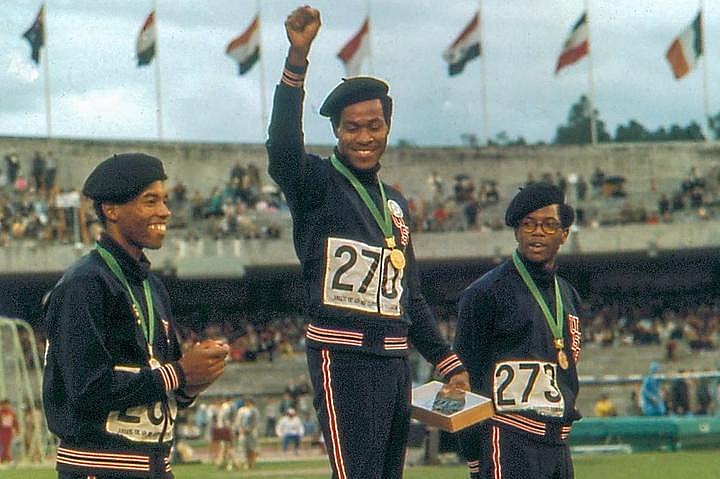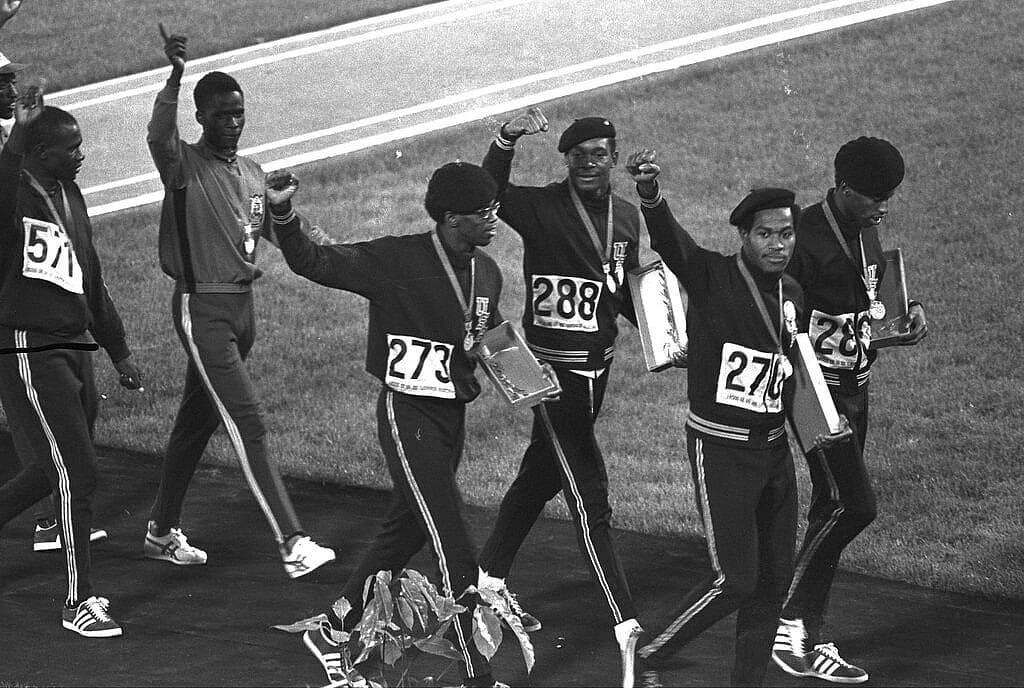The 1968 protest photo of Olympic track stars Tommie Smith and John Carlos is so widely cited it is practically seared in our public consciousness. Many of us can easily visualize the black and white picture from memory, recalling two men standing on Olympic pedestals, heads bowed and black fists proudly raised in the sky.
Less circulated photos capture Madera, California-born sprinter Lee Evans who also competed in the 1968 Olympic Games in Mexico City and protested against racial injustice. At 21-years-old, Evans won two gold medals for the 400 meter and four by 400-meter relay races; his 400-meter performance set a world record that was unbroken for 20 years.

On Wednesday, family members confirmed that Evans had passed away in Nigeria at 74 after suffering from a stroke. Evans was a founding member of the Olympic Projects for Human Rights, social justice activist, and track coach. He had been unconscious for a week after the stroke, and his children were arranging for their father to come to the U.S. for further medical care, the Mercury News reports.
Read More: ‘BLM’ apparel banned at the Tokyo Olympics
“Suddenly, he’s not here. All those dreams are not fulfilled. It is so painful,” said Segun Odegbami, who is a former Nigerian professional soccer player. Evans was an assistant track coach at Odegbami’s International College and Sports Academy.
“He’s a restless spirit and finally found peace when he settled in Africa. It is where he wanted to live, to work and where he would have wanted to die,” said Odegbami.
Post graduation, Evans was an assistant track coach at his alma mater and coached in Nigeria throughout the 1970s.
“His legacy of contributions to sports and the struggle for social justice is indelible and enduring,” said San Jose State sociologist Dr. Harry Edwards, who was the lead organizer of the Olympic Project for Human Rights. Tommie Smith and John Carlos were fellow teammates at San Jose State University, where Evans attended.
After Smith and Carlos were suspended from the Olympics for their protest, Evans debated whether he should compete.
Read More: Former Olympic gold medalist Tommie Smith receives Trumpet Award

In the end, Evans took home the gold and was joined on the Olympic stage with teammates Larry James, who won gold and silver, and Ron Freeman, who won gold and bronze. The men put their black berets back on after the playing of the U.S. national anthem, then walked away with their fists in the air.
“Winning was related to what was important to me. Black pride and the cause of social justice,” Evans later said. After the Olympic ceremony, Evans told journalists his victory was a symbolic one for all Black people.
“I feel I won this gold medal for the black people in the USA, and all black people all over the world.”
Have you subscribed to theGrio’s new podcast “Dear Culture”? Download our newest episodes now!
TheGrio is now on Apple TV, Amazon Fire, and Roku. Download theGrio today!

